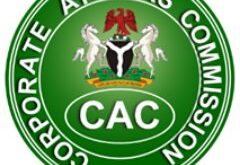The Corporate Affairs Commission has a duty to champion compliance with the world demand for transparency in corporate entities, says its newly appointed Registrar-General , Hussaini Ishaq Magaji. That will make “our system attractive to foreign investors. In our setting, CAC is the only agency of government that fulfills this obligation,” the fifth Registrar-General in the history of CAC tells The Commerce Africa in an exclusive interview.
Congratulations on your appointment as Registrar General, Corporate Affairs Commission. Watching you within this short period of assumption of duty, you give an impression of someone prepared for the job. What in your background has helped you to hit the ground running?
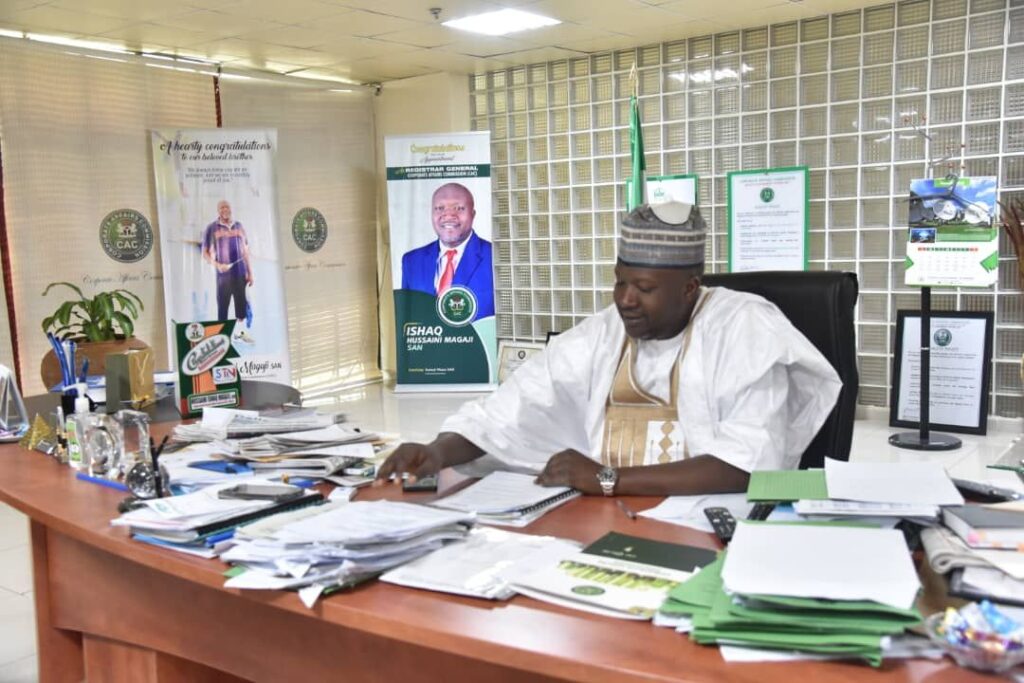
My name is Hussaini Ishaq Magaji, SAN. I have been appointed as the fifth Registrar-General of Corporate Affairs Commission.
I was appointed on 13th October, 2023 by His Excellency, President Bola Ahmed Tinubu, GCFR and I assumed office on the 16th October 2023.
I want to thank the Almighty God and the President for granting me worthy of this appointment.
As you are aware, I came from the private sector, not as it used to be. Corporate Affairs Commission, from history, all the previous Registrar Generals were appointed from within. They were career civil servants. I came from outside, from private law practice as a Senior Advocate of Nigeria before I got appointed here.
Coming from the private background, we are result-oriented. There you need to go the extra mile, work harder to achieve set goals. It is that zeal, that energy that I have brought to bear on this assignment. That gives me the confidence that I have what it takes to initiate and implement reforms in line with the Renewed Hope Agenda of President Bola Tinubu. We will strive to move the economy of our country to another level.
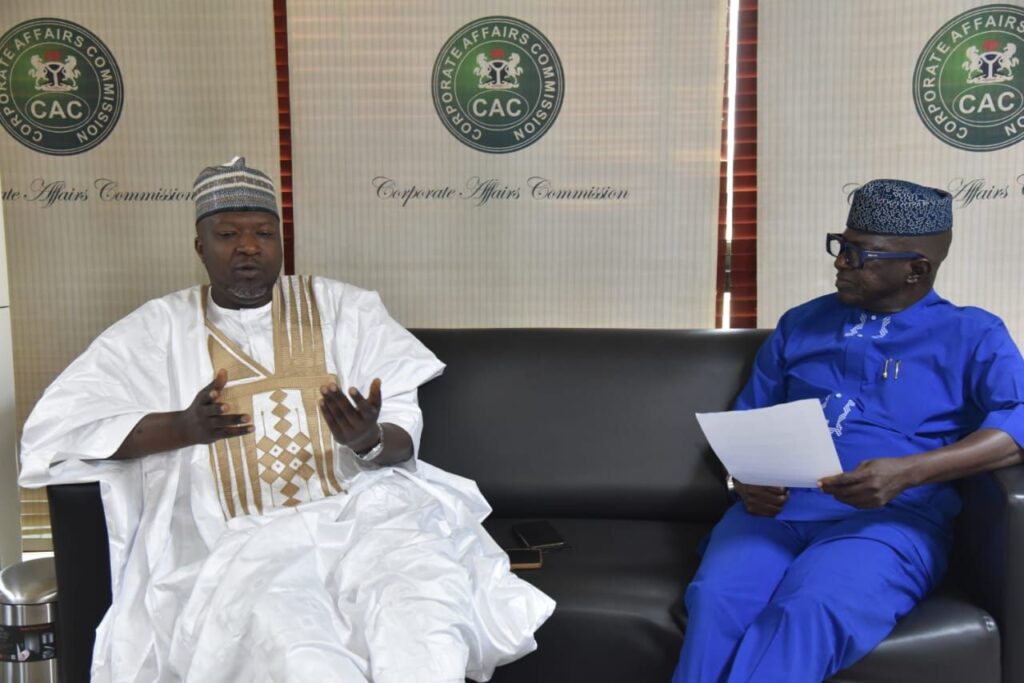
What’s your experience in the saddle as Registrar-General and how does that compare with your idea of what Corporate Affairs Commission represents?
Sincerely, I must tell you that the way it looks from the outside is not the way I found it. We thought Corporate Affairs Commission was about mere registration of companies. But, when I came in, I saw many critical areas that need to be handled professionally. It requires someone that is thorough and experienced to understand the process. It operates by law dealing with Companies and Allied Matters Act that requires training and professionalism. So, from outside, we see CAC no more than a revenue-generating organization, registering companies and all that. But, working within, I now see that CAC is a service provider.
CAC is a creation of law, Companies and Allied Matters Act which gives it the responsibility, the power to register companies in Nigeria and it is the only organization that is vested with that power. It is also CAC that has the power to supervise and regulate the activities of companies in Nigeria. This kind of mandate is so massive; you have pre- and post-registration tasks. The post-registration mandate has with it so many things attached like filing annual returns that requires companies to give an update about their activities including possible changes of address or whether directors have been added within the year under review and all others.
Do you think your self-funding status is conducive and compatible with your regulatory responsibilities?
In my own opinion, I can say our self funding status is compatible with our regulatory responsibilities. Let me expatiate a little bit. CAC is 100% self funded. It does not receive a dime from government. It generates its revenue, staff salaries are sourced internally, all infrastructure required are provided from its IGR. But this translates to autonomy, the power to be on its own.
If funding comes from somewhere else, influence may come. So, being self funded has conferred greater independence which is compatible with its regulatory responsibilities.
Pursuant to the provisions of the CAMA 2020, you gave final notice to companies that have defaulted in filing their returns. What is the level of compliance?
Compliance is impressive. Now, it is evident that poor communication was partly responsible for the failure of companies to file their returns until I came to draw attention to the imperative of obeying the law. Many thought their only obligation was to pay tax to FIRS. But, with diligent communication, people are responding massively. In fact, we got a request from MSMEs to extend the deadline for filing their returns. We will consider their request at management level to see if there is any justification for extension.
We know, humanly speaking people will still fail to file their returns. What remedies are there after companies have been delisted?
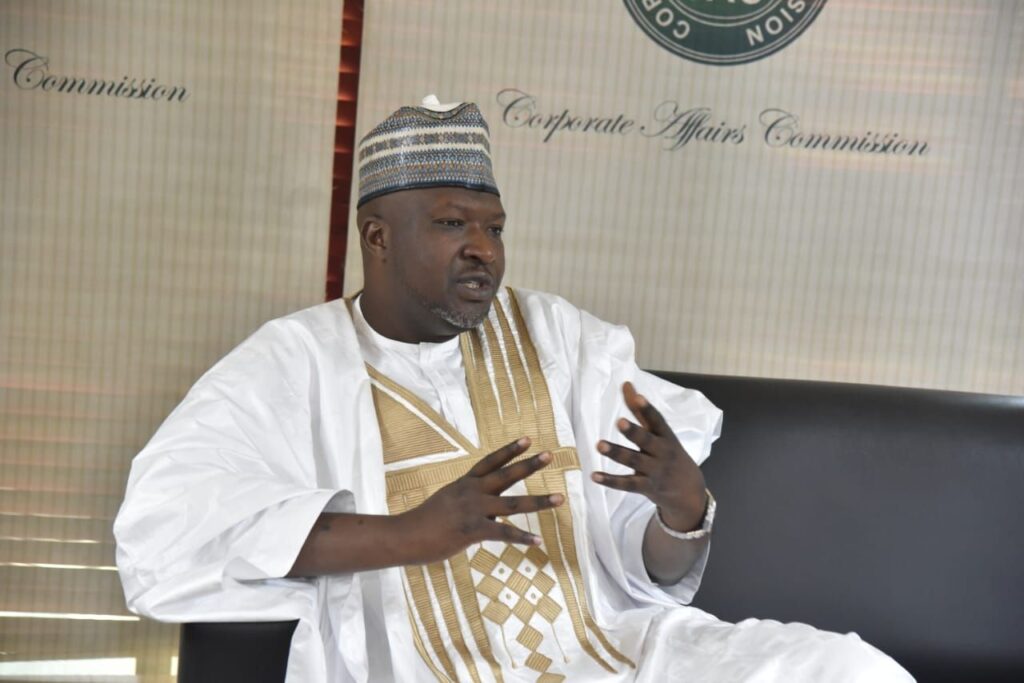
Our activities are guided by law. What the law says is that, if we eventually deregister a company, the procedure is that once deregistered, you can only come back by the order of the court.
That is if you deem it necessary to come back after you have paid the backlog, you will have to go and convince the court of the reason for your failure. So, if your argument is convincing to the court, an order will be given to us and we are bound to comply.
But, if within a timeframe you don’t address your problem, your company name will be open to whoever is interested to pick and register that entity.
You are a Senior Advocate of Nigeria; what level of court can entertain the case?
It is the Federal High Court. It is the court with the jurisdiction to entertain issues that fall within the Exclusive List like Companies and Allied Matters Act. The Federal High Court only has the jurisdiction to hear the case relating to companies matter and give consequential orders.
SMES are the engines of economic development in any country. Are there deliberate steps articulated by you to give life to SMEs?
Actually, that is why we are here. You know CAC maintains a strategic position in the economy. That is one of our areas of collaboration with our sister agencies, like SMEDAN. We just received a request from HYPADEC. These are some of the government agencies that provide training to the artisans. But they can’t give them formal business without collaboration with CAC. Our responsibility now comes to register them. If you create entities, then these agencies provide training for them. We render services to this segment at highly subsidized rates.
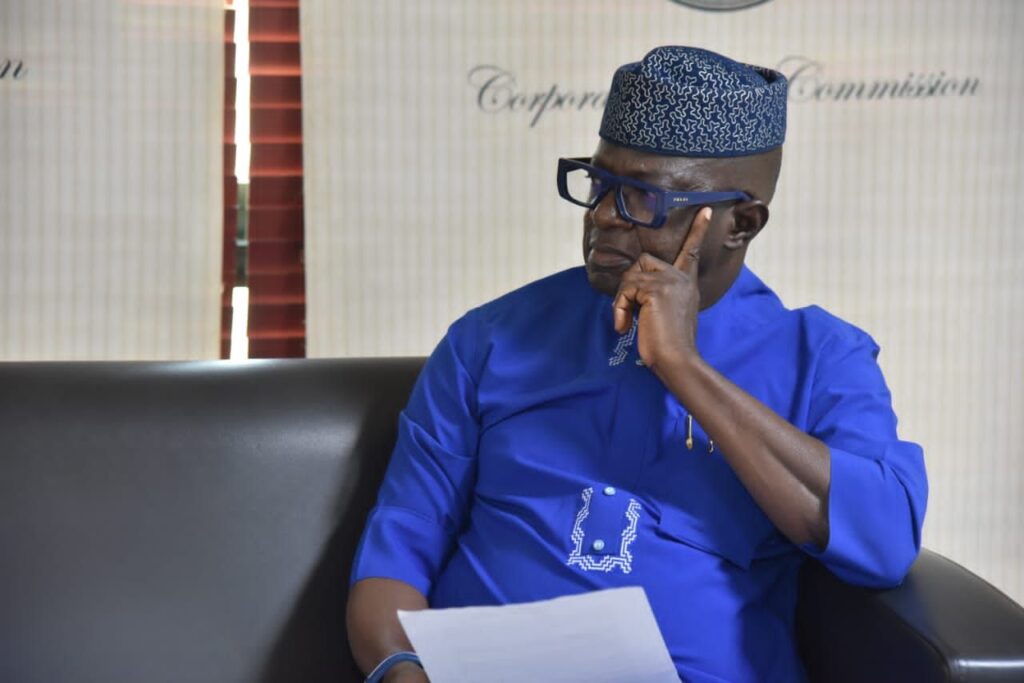
Besides, all government programmes, conditional cash transfer, government has observed some projects to assist the SMEs. They have rendered the Conditional Cash Transfer, Market money, a lot of projects.
This present government launched the payment of conditional grant scheme giving N50,000 each to people.
Under FMITI, people are registering as SMEs to apply for a loan of about a million, naira, some up to a billion. All these, after they have gotten approval for loan, CAC comes in to create entities for them to do business. With the entities created, it will give government opportunity to create the tax net to accommodate these entities just registered without which government would not have the basis to contemplate taxing them. So, registering the entities, you are helping government to create tax net.
Is CAC now being used as opportunity for people to be taxed who are already crying of heavy burden?
But tax is important. With tax, government is assisted to provide social amenities. If you are coming to this place from your house, you do so by smooth road provided by government. It costs money. Security that is provided by government imposes the task of funding the Police and other security apparatuses. These things cost money.
Creating conducive business environment is critical to the achievement of the Renewed Hope Agenda of President Tinubu. What would you do to complement the efforts of government in this direction?
What we have been doing is to ensure that we have stability in the economic system. What do I mean? It is from our angle that government has opportunity to know the number of businesses in Nigeria. Most of the security agencies rely on our data to ensure we remove ourselves from the embargo or sanctions in the world like the Beneficial Ownership—that is the in thing now in the corporate world. This requires that company owners are requested to disclose Beneficial Owners unlike before where you have a mighty company whose owners are not disclosed.
Some people in government positions disguise and own mighty businesses. Now, everybody, all shareholders must be disclosed. The identities can be tracked and traced.
With CAC championing compliance with the world demand for transparency in corporate entities, our system becomes attractive to foreign investors. In our setting, CAC is the only agency of government that fulfills this obligation.
What hurdles would you have to contend with to achieve your dream for Corporate Affairs Commission?
The major one is funding. We are doing everything purpose to achieve our funding requirements to enable us discharge our responsibilities adequately.
Staff welfare is important to me too. They need to be motivated to achieve set goals.
Citizen understanding of our role is also important. If you notice, recently, we made attempt to implement one position of the law in the payment of share capital of a company with foreign participation. It is a requirement from the Ministry of Interior that makes mandatory for any company with any foreigner as a shareholder, the minimum share capital is N100 million and must be paid up, cash backed with evidence. CAC now has the sole mandate to ensure compliance with this rule.
The hues and cry from outside are certainly borne out of ignorance of the law. This is a burden we must carry and resolve.
What is your vision for CAC that you are willing to commit yourself to?
I want to see CAC as the best place to work in Nigeria. That is my mission. My vision is to see that CAC can compete with any company in the world.
 The Commerce Africa African Reneissance
The Commerce Africa African Reneissance




